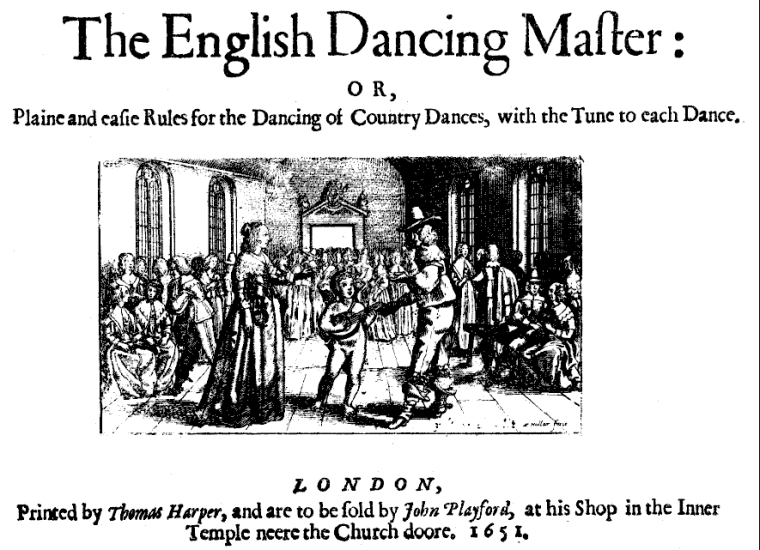Anonimo (sec. XVII): As at noon Dulcina rested, ballad su testo attribuito erroneamente a sir Walter Raleigh (1554? - 1618). Ellen Hargis, soprano; Paul O’Dette, cittern; The King’s Noyse, dir. David Douglass.
As att noone Dulcina rested
In her sweete & shadie bower;
Came a sheppard, & requested
In her lap to sleepe an houre.
But from her looke
A wound hee tooke
Soe deepe, that for a farther boone
The Nimphe hee pray’d,
Whereto she say’d,
Forgoe mee nowe, come to mee soone.
But in vaine shee did conjure him
For to leave her presence soe,
Havinge a Thousand meanes t’alure him,
& but one to lett him goe.
Where lipps delighte,
& eyes invite,
& cheeks as fresh as rose in June,
Persuade to staie,
What boots to saye
Forgoe mee nowe, come to mee soone.
Hee demaunds what time or leisure
Can there be more fitt then nowe:
She saies, night gives love that pleasure,
Which the day cannot alowe.
The sunns clere light
Shyneth more bright
Quoth hee more fairer then the moone
For her to praise
Hee love, shee saies,
Forgoe mee nowe, come to mee soone.
With greife of heart this shepheard hasted
Up the mountaine to his flocks,
Then hee tooke a reed and piped
Th’echo sounded through the rocks,
Thus did hee plaie
& wishe the day
Were spent, & night were come ere noone,
For silent night
Is loves delight
Ile goe to faire Dulcina soone.
Beauties Darling faire Dulcina
Like to Venus for her love
Spent the day away in passion
Mourninge like the Turtle Dove,
Melodiouslie,
Notes lowe & highe
Shee farbled forth this dolefull tune,
O come againe,
Sweete sheppard swaine,
Thou canst not be with mee to soone.
When as Thetis in her pallace
Had receiv’d the prince of light
Came in Coridon the shepheard,
To his love and hearts delight.
The Pan did plaie
The wood Nimphes they
Did skip & daunce to heare the tune,
Hymen did saie
T’was holidaie,
Forgoe mee nowe, come to mee soone.
Sweete, hee say’d, as I did promise
I am nowe return’d againe,
Longe delaie you knowe breeds daunger
& to lov’rs breedeth paine.
The Nimph say’d then
Above all men
Still welcome shepheard morne & noone,
The shepheard praies,
Dulcina saies,
Shepheard, I doubt y’are come to soone.
Come you nowe to overthrowe mee,
Out alas I am betray’d,
Deare, is this the love you shewe mee
To betraie a silly maide.
Helpe, helpe, ay mee,
I dare not speake
I dare not crie, my heart will breake.
What, all alone?
Nay, then I finde
Men are to stronge for woemen kinde.
O sillie foole, whie doubt I tellinge
When I doubted not to truste.
If my bellie fall a swellinge
There’s noe helpe but out it must.
Ay mee, the greife,
Ay mee, the shame,
When I shall beare the common name.
Yet att the worst
Of my disgrace
I am not first, nor shal be laste.
La prima menzione di As at noon Dulcina rested risale al 1690, mentre la prima pubblicazione nota è del 1707 e si deve a Thomas D’Urfey, che l’inserì nella sua monumentale silloge intitolata Wit and Mirth, or Pills to Purge Melancholy (1698-1720). La musica è caratterizzata da un brusco cambio di ritmo e andamento al 5° verso della strofe: a una prima parte fluente, in ritmo binario, fa seguito una seconda parte saltellante, in ritmo ternario. Questo particolare induce a pensare che la musica fosse in origine destinata alla danza e che il brano con molta probabilità facesse parte di un masque, un genere di rappresentazione teatrale che andava molto in voga in Inghilterra ai tempi di Giacomo I.
Ebbe vita propria come composizione soltanto strumentale, mantenendo perlopiù il titolo di Dulcina derivatole dal testo dello pseudo-Raleigh. Purtuttavia, in precedenza William Brade (un inglese attivo a Amburgo: l’abbiamo già incontrato, per esempio qui) l’aveva rielaborato a cinque parti strumentali e pubblicato con il titolo di Turkische Intrada; qui è interpretato dai Musicians of the Globe diretti da Philip Pickett:



